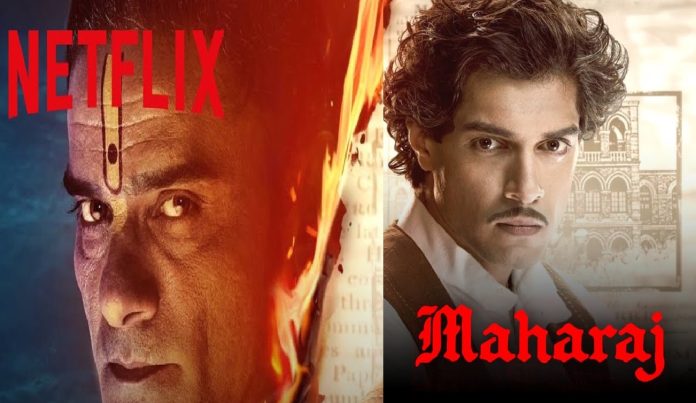Yash Raj Films and Netflix today (June 14) challenged the interim stay granted by the Gujarat high court on June 13 against the release of their Maharaj. An application for vacating the ex parte interim stay was filed by advocate Nachiket Dave on behalf of YRF. Maharaj was slated to stream on Netflix from today (June 14) but its release had to be postponed owing to the interim stay.
YRF’s application states that the original petitioners (belonging to the Pushtimarg sect) moved their petition on the basis of incorrect and half-baked facts and relied solely on conjectures, surmises and half-truths. The application underlines that a false narrative — that the Pushtimarg sect has been ridiculed by showing a religious head of that sect as exploiting women — sought to be projected by the petitioners without knowing that the producers have included a disclaimer in a slide in the film as follows: “A sect is far more important than any individual or incident. Treating this incident as an exception, the Vaishnav sect continued on the path of religion. The Vaishnav sect and its followers continue to grow and remain a proud and integral part of the social, cultural and religious fabric of India.”
It may be pointed out that the film, inspired by real events, is based on a book of the same name in Gujarati language, written by one Saurabh Shah. The book was published in late 2013 and has, therefore, been in the public domain for 10 years. There has been no instance of either the book resulting in claims of defamation or even in incitement of violence against followers of the Pushtimarg sect. The original petitioners have told the court that the film could incite violence.
YRF has said in its application that the film portrays an abuse of power by a particular head of a temple within the Vaishnav sect, and the attempt by a social reformer, Karsan Das Mulji (a devout Vaishnav himself), to show the true abusive nature of the priest, to the devotees and the general public.
Pertinent to note that the author of the book — Saurabh Shah — and two of the writers of the film, viz. Vipul Mehta and Sneha Desai, who have adapted the book for the film, are themselves Vaishnavs. What’s more, the wife of Siddharth P. Malhotra, director of Maharaj, is also from the Vaishnav community/sect. Besides, the services of a Vaishnav priest were used during the film’s production.
Meanwhile, author Saurabh Shah has said that the film does not vilify the Vaishnav community or religion. Rather, “it is about a social reformer who brought about a positive change in society”.






























